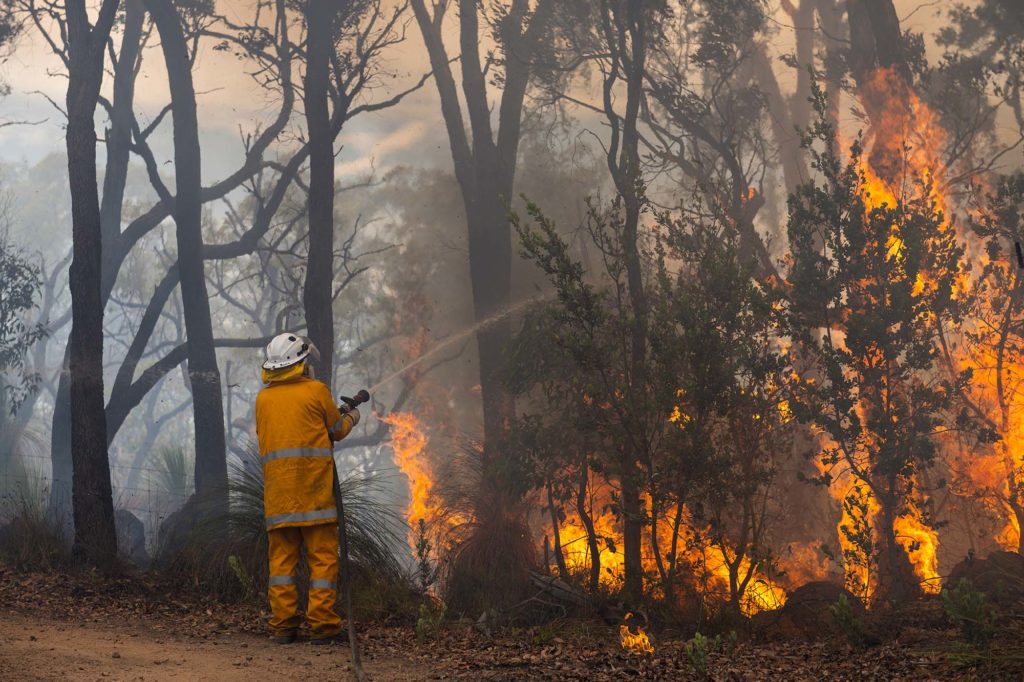What do I need to know about
new WHS reporting obligations?
WA’s new Work Health and Safety Act 2020 (WHS Act) and regulations will commence on 31 March 2022.
While these measures are designed to ensure the safety of the WA community, the rapid timing and ambiguity around how changes affect us as individuals and in the workplace can be stressful. Moreover, WA borders opened on 3 March, with many worried about how rising case numbers will impact life as we know it.
Seeking to understand our responses is a proactive step towards adaptability and emotional agility.

We’ve been living in a state of hyper-vigilance – along with the inability to plan ahead – for an extended period of time. This uncertainty contributes to anxiety.
Uncertainty is an unavoidable aspect of our daily lives, however the pandemic has disrupted our ability to deal with uncertainty through challenges in mitigating the impact to our lives. Constant feelings of uncertainty can impact how efficiently and effectively we manage adversity, and if not addressed, contributes to unhealthy levels of anxiety that can impact mental health.
With the state borders reopening and the current uncertainty around how we learn to live with a potential endemic, the need for proactive self-management and actively engaging in support resources is crucial to reducing anxiety levels and looking after your mental wellbeing.
WA’s new Work Health and Safety Act 2020 (WHS Act) and regulations will commence on 31 March 2022.
There is no hard and fast rule regarding whether contraction of the COVID-19 virus is compensable under the Workers’ Compensation & Injury Management Act 1981 (the Act) – it will need to be determined on the facts of each case.
The past two years have been tumultuous, with unplanned changes to restrictions, safety measures, and border closures adding to the stress and uncertainty of the COVID-19 pandemic.
The Australian Bureau of Statistics reported across 2020-21, 61% of Australians used at least one strategy to manage their mental health. Employing multiple strategies can be considered best practice in adopting a holistic response to being the best version of ourselves when in the face of uncertainty.
Consider implementing the below stress management strategies:
Problem-focused coping: Involves managing and dealing with the stressor (problem) directly, in an attempt to reduce or resolve the issue. Best suited when the source of the stress is within your control.
This strategy involves:
Emotion-focused coping: Focuses on reducing negative emotional responses associated with feelings of anxiety. Useful when the source of the problem is outside your control. This strategy employs self-management behaviour for proactive self-regulation, including:
If you feel able, stay informed on COVID related facts from viable sources and limit media exposure. LGIS recommends Healthy WA website for general COVID related queries and WALGA for local government specific information. It’s also important to take a break from the news cycle if it begins feeling overwhelming.
Other tips include:
How can LGIS help?
The LGIS People Risk Services are available to discuss tools and services that are available to members – all services can be tailored to your individual local government. For more information, please contact Emma Horsefield, LGIS People Risk Manager on [email protected] or discuss with your LGIS regional risk coordinator.

The City of Fremantle’s new agile workplace sets the standard on putting employee
wellbeing – and ergonomics – first.

The recent Intergovernmental Panel on Climate Change (IPCC) report stresses the time to act on climate change is now, and there is much work to be done – including by local governments.

Local governments are often planning exciting new places for their communities to gather and play.
LGIS is the unifying name for the dedicated suite of risk financing and management services for WA local governments, established by the WA Local Government Association in conjunction with JLT Public Sector (part of the Marsh group of companies). LGIS is managed by JLT Public Sector (ABN 69 009 098 864 AFS Licence 226827).
Risk Matters, via this website, is designed to keep members, their staff and elected members informed on topical risk management and insurance issues and LGIS programs and services.